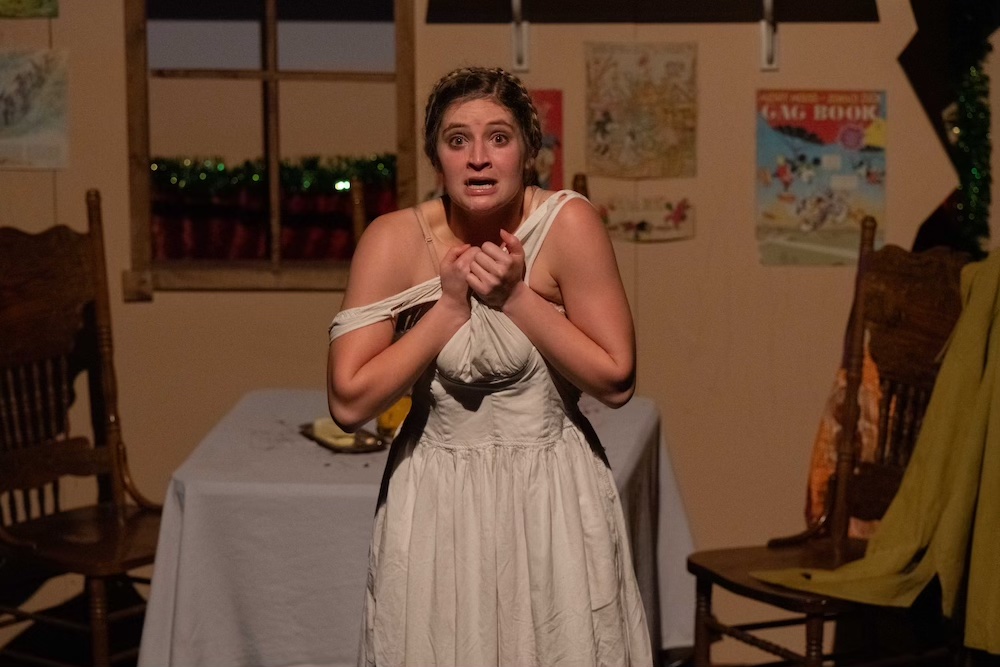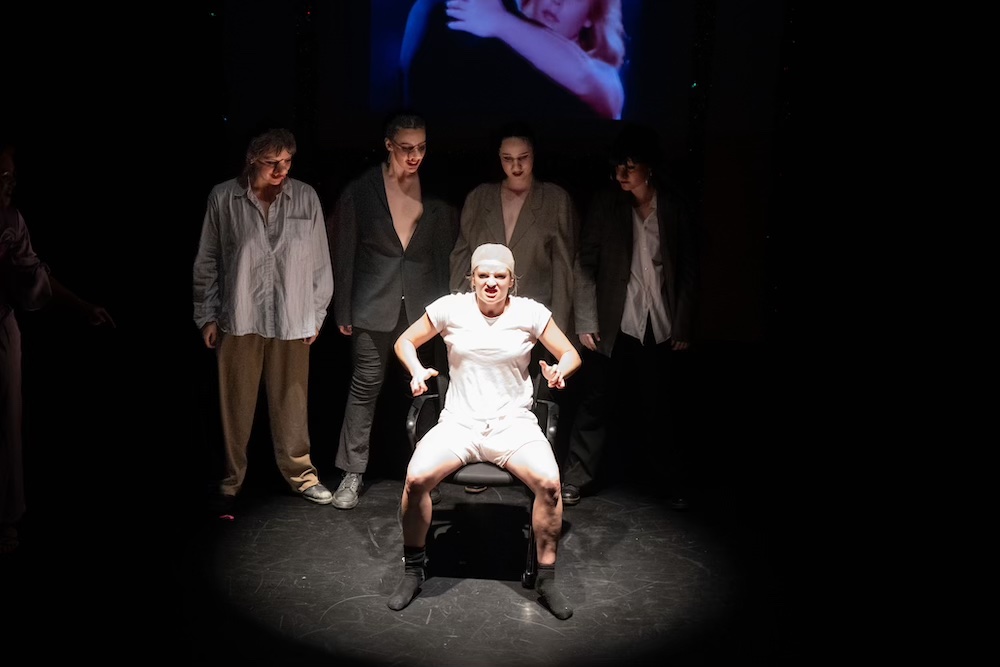In January I was chatting with Jack Skelley, the author of The Complete Fear of Kathy Acker (FOKA) published last year through Semiotext(e). We spoke about how young writers are connecting with the older generation in the Los Angeles writing scene—it feels a lot like church, I told him. A strange connection to draw but the scene allows intergenerational writers and readers to collect around something divine, the written word. Skelley’s book is one the community has gathered around, though if you read it, you’ll hear nothing close to a sermon. Skelley’s book is no Bible, yet it has its disciples.
Siena Foster-Soltis, the San Fernando-born playwright, adapted Skelley’s novel into Fear of Kathy Acker (the play) which ran three nights at the Illusion Magic Lounge in Santa Monica, February 27–29. The play had an all-female cast with standout performances by Romy Kim playing “Endora,” and Magdalene Cherry playing “Jack.” Cherry captured the chaos of a writer falling apart from guilt and self-doubt. Laughs abounded from the sultry squad of the “Death Drive” girls, the “Greek chorus,” adorned in fishnets and Foster-Soltis’ signature grotesque masks who played foil to Jack’s pursuit of authentic writing.
The play ran 90 minutes over three acts and followed Siena, a Los Angeles-based writer absorbing the persona of Jack using his identity as proxy to navigate the journey to expression, blending exterior and interior scenes and blurring the lines of reality as the writer finds what it means to both struggle and succeed. Jack appeared in LA clubs and suburban homes battling sycophants as sirens at a reading and low self-esteem personified in the witch Endora who haunted him at every turn.

The book and play are both corralled chaos, an amalgam of wet-dream fantasies and LA mythmaking and at times were an abstraction of the real story. Jack was constantly pursuing his love Megan, played by Aviana Glover, yet was guilty of enjoying the recognition he received for his novel FOKA. Foster-Soltis integrated the references in the book to style everything from the playlist in the lobby before the show to Vin Scully, played by Amelia Whitney, narrating parts of the play like a game at Dodgers Stadium. She succeeded in creating a new object in which she included herself and her experience into the story the “real” Jack Skelley wrote in the ’80s. She placed herself next to Skelley and even though decades separate them in age, they were one for 90 minutes, side-by-side fighting the fight of being writers in Los Angeles.
The exploration of connection between 1980s subversive pervert fantasy and 2024 aspiring female writer in the digital world seems like a vast, impassable chasm, yet FOKA (the play) was a catalyst bringing two worlds together. The play was self-aware enough to understand that in adapting someone else’s work one inherently centers themself. It’s obviously something that Foster-Soltis was dealing with. Consider the quote from Scully in the first act, “With hardly any real talent, incurable cynicism, unrelenting vanity and pertinacious suicidal ideation, it can be a real roll of the dice dealing with Siena [Jack].” Foster-Soltis was successfully placed within Skelley’s novel by making herself the protagonist of the play, but this was not done in a way that was appropriative but instead affectionate. She reflected on their shared struggle in art.
What the audience got was an intelligent and entertaining account of what it means to be a writer, how one tackles insecurities and the balancing act between appeasing the assumed audience and authentic vision. The play was clearly the work of a young artist and that was something to celebrate. Some see art by young writers as encumbered by the limited worldview of youth but that’s too reductive. Instead, one should view Fear of Kathy Acker (the play) as the starting locus of what could be an exciting and ambitious career of an avant-garde playwright and director.


